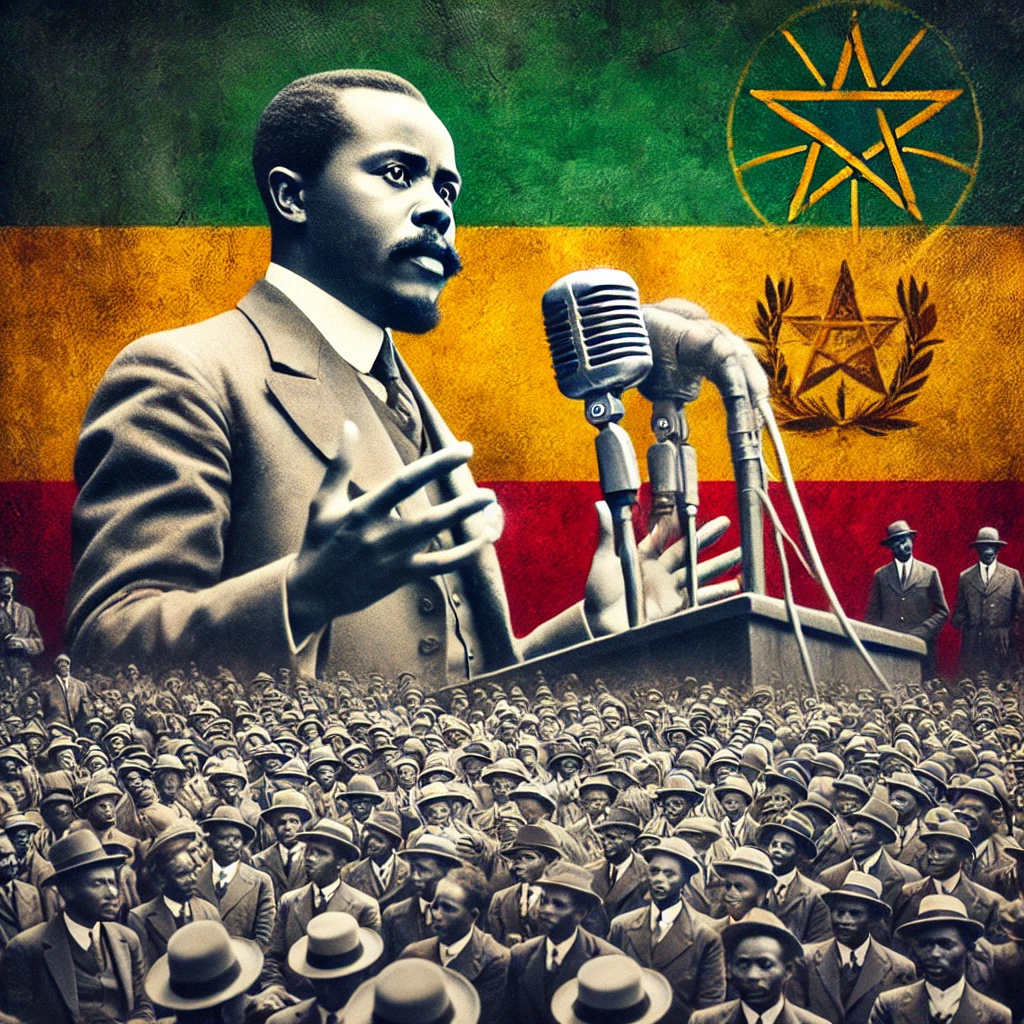Marcus Mosiah Garvey, one of Jamaica’s most celebrated national heroes, holds a central place in Rastafarianism. Though Garvey wasn’t a Rasta himself, his vision of African unity and liberation became a foundation for the movement. Known for his powerful oratory, black empowerment ideals, and calls for repatriation, Garvey is seen as a prophet whose teachings paved the way for Rastafarian beliefs.
Di Life of Marcus Garvey
Born in St. Ann’s Bay, Jamaica, in 1887, Marcus Garvey grew up in a time when colonial rule oppressed people of African descent. From an early age, he was passionate about fighting against racial injustice. He went on to become an influential political leader, founding the Universal Negro Improvement Association (UNIA) in 1914. Garvey’s message was clear: black people must unite, reclaim their heritage, and return to Africa, their ancestral homeland.
Garvey’s slogan, “Africa for Africans, at home and abroad,” echoed his dreams of African self-determination, pride, and identity. His words spread across the African diaspora, inspiring millions, including future Rastafarians.
The Prophecy of Haile Selassie I
One of Marcus Garvey’s most famous prophecies was, “Look to Africa, when a black king shall be crowned, for the day of deliverance is at hand.” This prediction was key in establishing Garvey’s influence on Rastafarianism. In 1930, Ras Tafari Makonnen was crowned Emperor Haile Selassie I of Ethiopia. For the early Rastas, this was seen as a fulfillment of Garvey’s prophecy, and Selassie was recognized as the living God, Jah, and the King of Kings.
Although Garvey himself didn’t view Haile Selassie as divine, Rastafarians embraced the emperor as the Messiah and credited Garvey for foretelling his rise to power.
Garveyism and Its Influence on Rasta Teachings
Marcus Garvey’s teachings are embedded deeply in Rastafarian philosophy, even though the two movements developed separately. Here’s how Garveyism influenced Rasta beliefs:
- Repatriation: Garvey’s vision of returning to Africa became a cornerstone of Rastafarian ideology. Rastas believe in the physical and spiritual repatriation to Zion (Africa), specifically Ethiopia, seen as the Promised Land.
- Black Pride and African Identity: Garvey preached self-love, racial pride, and resistance to Western ideals. His teachings encouraged Rastafarians to reject the oppressive system of Babylon (Western materialism) and embrace their African heritage.
- Pan-Africanism: Garvey’s call for unity among people of African descent resonated within Rastafarianism, where brotherhood and unity are key principles.
Marcus Garvey’s Global Impact
Garvey’s influence wasn’t limited to Jamaica or Rastafarianism. His Pan-African ideals inspired independence movements across Africa, civil rights leaders in America, and black nationalist movements worldwide. Figures like Martin Luther King Jr. and Malcolm X looked to Garvey as a source of inspiration in their fight for racial equality.
Though Garvey passed away in 1940, his legacy continues to live on through the teachings of Rastafarianism and other movements aimed at dismantling systems of racial oppression.
Garvey’s Vision Today
In modern times, Garvey’s messages of self-empowerment, African unity, and resistance to oppression remain as relevant as ever. Rastas honor Garvey’s work by living out his ideals, embracing their cultural roots, and standing firm against the exploitation of Babylon.
Through Marcus Garvey, Rastafarians continue to fight for liberation, spiritual fulfillment, and the freedom to return to Zion. His legacy is one of strength, hope, and unwavering faith in the power of black unity.

